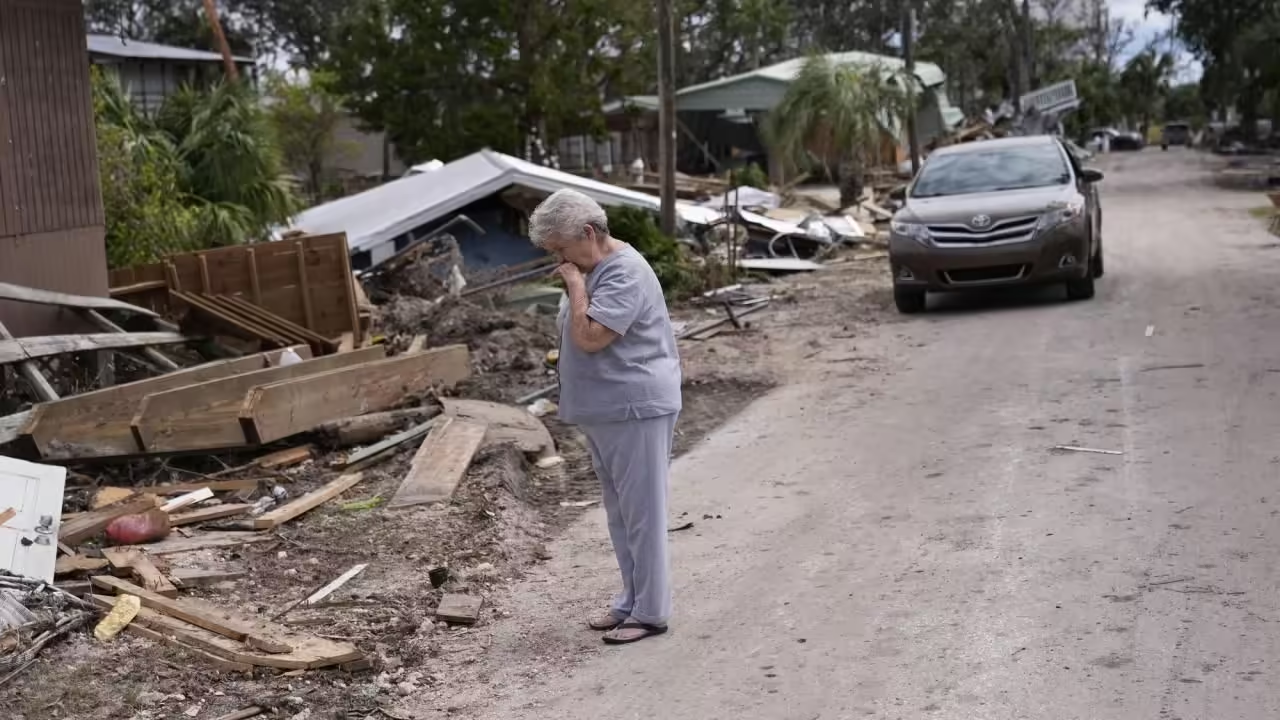Hurricane Helene has left a trail of destruction across the U.S. Southeast, resulting in at least 64 fatalities, widespread homelessness, and significant power outages for millions. The storm made landfall late Thursday in Florida’s Big Bend region as a Category 4 hurricane, packing winds of 140 mph (225 kph).
In the aftermath, communities are grappling with severe challenges. Janalea England, a resident of Steinhatchee, Florida, highlighted the unprecedented level of homelessness in her area, transforming her fish market into a donation center for those unable to secure insurance for their homes.
Destruction Across the Southeast
As Helene moved inland, it wreaked havoc in Georgia, prompting Governor Brian Kemp to describe the scene from the air as looking “like a bomb went off,” with splintered homes and debris covering highways. The weakened storm then drenched the Carolinas and Tennessee, causing rivers and creeks to overflow, resulting in significant flooding and landslides. In Western North Carolina, parts of Interstate 40 were closed due to these landslides, isolating many communities.
Emergency rescue operations were underway, with dramatic scenes emerging from rural areas. In Unicoi County, East Tennessee, helicopters were deployed to rescue dozens of patients and staff from a hospital rooftop. Buncombe County, North Carolina, faced similar challenges, with parts of Asheville underwater.
Quentin Miller, the sheriff of Buncombe County, noted that the extent of the disaster took authorities by surprise. Residents like Mario Moraga reported heartbreaking scenes, with many neighborhoods lacking cell service and electricity, complicating rescue and recovery efforts.
Unprecedented Flooding and Damage Estimates
The storm has produced the worst flooding in a century in parts of North Carolina. Spruce Pine received over two feet of rain from Tuesday through Saturday, while Atlanta recorded 11.12 inches of rain within 48 hours—the highest since records began in 1878.
President Joe Biden acknowledged the overwhelming devastation caused by Helene, pledging federal assistance and approving a disaster declaration for North Carolina. Moody’s Analytics estimates property damage between $15 billion to $26 billion, while AccuWeather’s preliminary analysis suggests total economic losses could range from $95 billion to $110 billion.
Community Resilience Amid Crisis
As communities begin to assess the damage and start cleanup efforts, residents are coming together to support one another. Evacuations were ordered before the storm, and rescue operations continue as conditions remain precarious. Helene’s death toll includes at least 25 in South Carolina, marking it as the deadliest tropical cyclone for the state since Hurricane Hugo in 1989.
With climate change contributing to more frequent and severe storms, the impacts of Hurricane Helene serve as a stark reminder of the increasing vulnerability of coastal communities. As recovery efforts progress, the focus will be on rebuilding while preparing for future storms in an era of escalating climate-related challenges.



